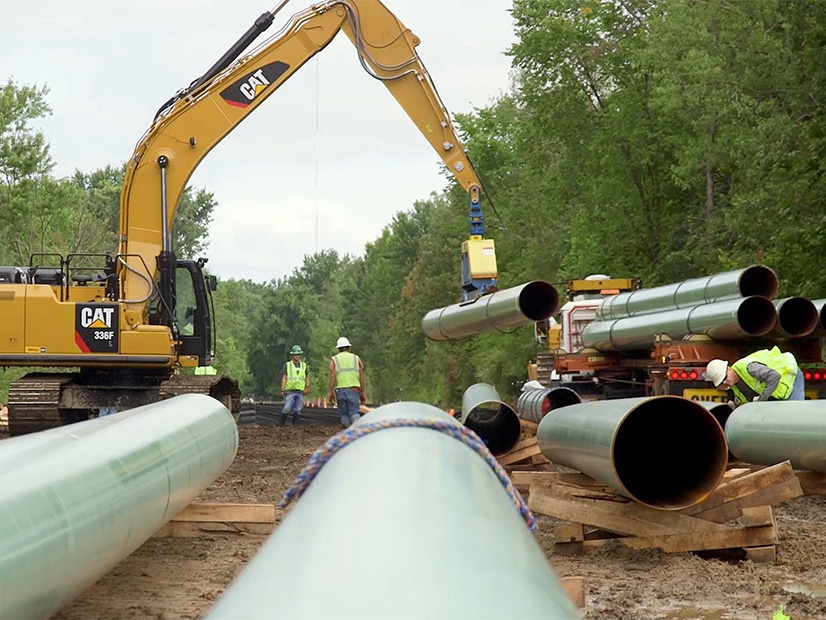A three-judge panel of the D.C. Circuit Court of Appeals issued a decision Jan. 7 that sided with FERC in an appeal of the agency’s decision approving a natural gas pipeline in Indiana.
The pipeline was proposed to serve new natural gas units the state had approved to replace a retiring coal plant. Citizens Action Coalition of Indiana argued that FERC failed to analyze non-gas alternatives before approving the pipeline.
“We disagree,” the court said. “Congress gave FERC authority to promote the development of interstate natural gas pipelines, but it left the choice of energy generation to the states. The purpose of the pipeline was to support Indiana’s energy plan, and FERC has no statutory authority to consider non-gas alternatives already rejected by the state.”
The win by FERC follows losses on other pipeline cases at the D.C. Circuit, including a New Jersey one in which the commission approved new pipeline capacity that the state opposed on the grounds that it clashed with its climate policies. (See DC Circuit Vacates Pipeline Approval FERC Issued over NJ’s Objections.)
The Natural Gas Act requires FERC to approve a pipeline if it determines the project is “required by the present or future public convenience and necessity.” It also can approve a project when its public benefits outweigh its adverse impacts.
Indiana regulators in 2017 approved CenterPoint Energy’s integrated resource plan, which included a proposal to replace coal generators at its A.B. Brown Generating Station with solar and natural gas facilities. The utility initially wanted an 850-MW gas-fired unit, but state regulators rejected that plan and approved two smaller gas turbines that together produce 460 MW.
“That brings us to the pipeline at issue here,” the D.C. Circuit decision said. “CenterPoint contracted with Texas Gas Transmission to supply natural gas to the planned units. Texas Gas then applied to FERC for approval of a 24-mile pipeline crossing the Ohio River and connecting the A.B. Brown site to an existing pipeline system in Kentucky.”
FERC approved the pipeline after performing an environmental impact statement. Citizens Action filed for rehearing on the grounds the commission failed to consider alternatives to the gas units, failed to determine the impact of emissions, was wrong to net the drop in emissions from replacing coal with gas, and failed to properly balance environmental impacts with its public convenience and necessity determination.
The National Environmental Policy Act does not require FERC to consider non-gas alternatives that are outside its jurisdiction and would fail to serve the purpose of the project.
“The project seeking certification from FERC is not the natural gas units, but the pipeline serving those units,” the court said. “Before Texas Gas applied for a certificate, CenterPoint and the Indiana commission had already determined that the public interest would be best served by the construction of natural gas units that ensure grid reliability and support the move to wind and solar generation.”
FERC rejected Citizens Action’s request that the project be defined as promoting solar and wind, saying detailed evaluations of other power generation alternatives are separate questions from the pipeline proceeding.
“More to the point, FERC could not lawfully define the project’s purpose as broadly as Citizens Action requests because Congress has not authorized FERC to choose between electricity generation resources,” the court said. “The NGA empowers FERC to approve new gas pipelines. It does not permit FERC to regulate the energy generation facilities those pipelines supply.”
States have the authority to choose their preferred mix of generation, leaving the CenterPoint turbines outside of FERC’s jurisdiction, the court found.
FERC did assess whether the gas turbines could be served adequately by existing pipelines and looked into alternative routes, which the court said showed it “adequately considered alternatives.”




